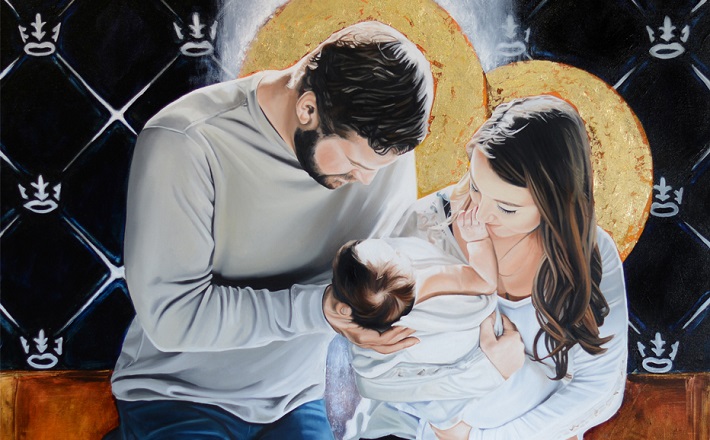Commentary on Isaiah 62:6-12
So many choices!
For Christmas Day in any of the years of the lectionary cycle, a preacher can turn to three sets of assigned readings. The preacher can choose Luke’s familiar passage about the census and the shepherds, or John’s complex poem about the word becoming flesh. Why should a preacher turn to a confusing prophecy from the closing chapters of Isaiah, the authorship of which has created controversy for centuries?
If a preacher feels guilty about neglecting the Old Testament and decides to make that up, why not choose Isaiah 9, one of the alternate readings for the day. The movement in that passage is clear: from darkness to light. Isaiah 9 gives us joy, the breaking of the bar of oppression, the destruction of the boots of violence and the affirmation of the leadership of a child. What case can be made for Isaiah 62:6-12?
Before you flip away, hear me out. Yes, the lectionary committee cuts the chapter in half and asks the preacher to begin in the middle. Yes, the movement from verse 5 to verse 6 is a jump in subject matter and metaphor. Yes, the sentinels on the walls of Jerusalem make for a confusing picture. Does the prophet mean heavenly beings who can make enough noise to gain God’s attention? Are they simply regular sentinels? Why bother figuring it out, when the scholars aren’t even sure?
This beautiful poem speaks to a sense of frustration, of impatience, even of anger. Christmas day gives the contemporary church a chance to celebrate and decorate. We love the beauty, the hymns, the children in their costumes. Inevitably, however, we face the reality that Christmas day doesn’t really change anything. War, crime, violence, hatred, and political dysfunction continue unabated, no matter how movingly we sing “Joy to the World.” Christmas day becomes merely an escape, a brief oasis in the midst of the world’s agony, indifference and cruelty.
Preachers can speak an honest word from this text. Beyond just the “Blue Christmas” phenomenon, which realizes that Christmas can bring deep grief to the surface, the birth of Jesus began a process that Christians believe will end in God’s ultimate triumph. Christians continue to wait, not only for the full realization of hope, but signs of progress.
If scholars are correct (very likely) that this part of Isaiah expresses the emotions of God’s people over the shortcomings of the return from exile, then the prophet foreshadowed our emotions over the persistence of evil in God’s good creation. The prophet who wrote Isaiah 40-55 promised the dispirited people return from exile. The people lived into the fulfillment of that promise.
The wonder of reestablishing the community soon morphed into more troubles: infighting, slow progress, and dealing with Persian politics. Even though we have trouble sifting through the exact meaning of all of the prophet’s words, the emotion comes through clearly. The people feel caught between faith and trust in God and the demoralizing effects of persistent waiting.
The reading for today begins with the prophet announcing that he will post “sentinels” on the walls of Jerusalem. The image immediately captures the attention of the reader. Sentinels typically warn the inhabitants within the walls of an approaching attack. They make noise only if they detect danger. Isaiah’s sentinels never shut up! They make noise to remind God of the situation of the people. They protest so loudly that the Lord cannot rest. The sentinels make such a racket that the Lord cannot relax.
The Lord cannot shut off the sound of the sentinels until the people receive justice. The prophet chooses as shorthand for justice fulfillment in work. Those who harvest the grain and grapes shall enjoy the fruit of their labor. They shall not work for the luxury of others. This example stands in for injustice in all of its forms. Part of what the sentinels cry out for is fairness, in work and other areas of life.
Even though the prophet wrote after the return from exile, the prophecy ends with a renewed call to prepare to return. In an echo of Isaiah 40:3, the people begin to prepare to go back to Jerusalem. Perhaps the end of the poem seeks to recapture the excitement of the prophet known as II Isaiah, who inspired the people to take on the task of relocating and starting the mission all over again.
Intriguing possibilities for preaching emerge from this passage. Instead of using the same, familiar texts for Christmas day, the preacher can proclaim from this prophet an understanding of the relationship between God and people that congregations may find stimulating. God has promised that through Israel and Jesus a new thing will emerge, an experience of healing and redemption. That experience remains unrealized.
In the prophet’s creative, unexpected metaphors, the anguish of the people matters to God. Christmas, the birth of the Messiah, initiated a process that should result in peace and joy. The prophet not only gives the church permission to lament the agony of continuing to wait, but proclaims that the laments actually affect God.
God cannot rest because God’s people continue to suffer. If the church feels powerless against evil, if the church laments exploitation of workers (verses 8-9), if the church loses patience that the birth of the Messiah seems to make no difference in the world, the prophet encourages lamentation over the frustration. Yet, the passage ends in hope.
The frustration now will give way to the joy of salvation. Those who have felt abandoned will know community and relationship with God. The passage enables the experience for Christmas of lamenting the continuing frustration of waiting, while continuing to trust in God’s promises for justice, joy and peace.


December 25, 2018